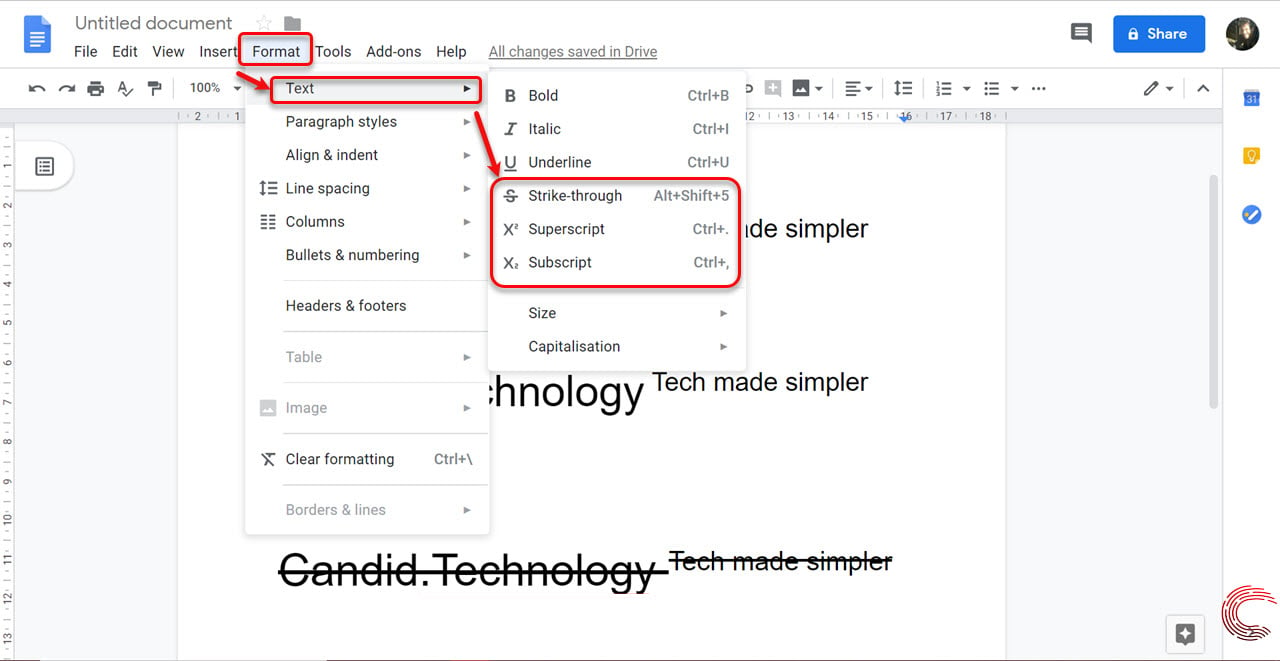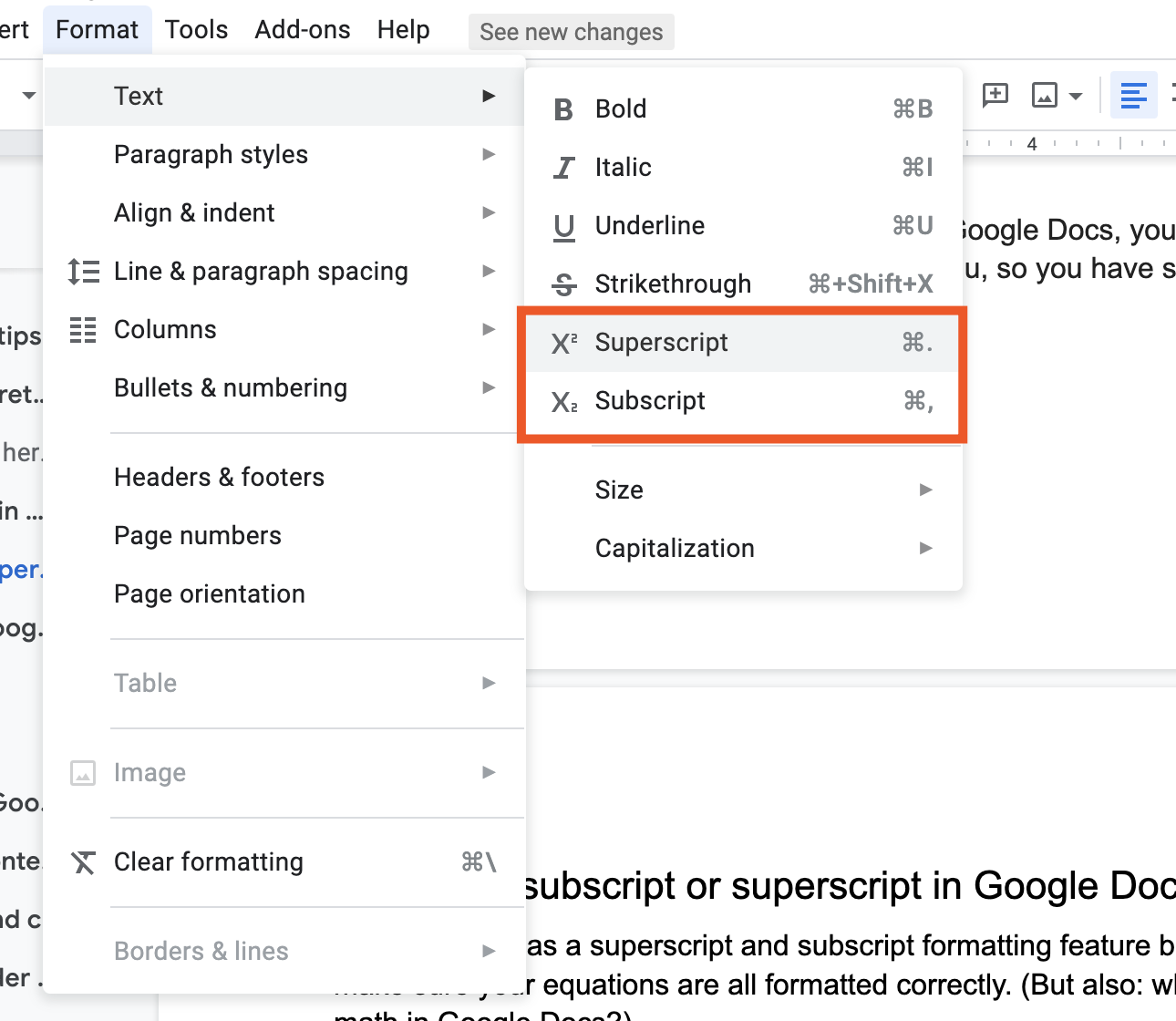
- #Google docs subscript shortcut how to
- #Google docs subscript shortcut update
- #Google docs subscript shortcut full
- #Google docs subscript shortcut mac
Unicode doesn't have this problem and is consistent across word processors and CMS systems. If you copy and paste a document containing formatted superscript to another program, it might not keep the formatting. If you tell Docs to change a "2" to superscript, it adds a hidden note that tells the browser to change how it looks. For example, in Unicode, 2 and ² are two different characters.

The ‘Special characters’ box will now appear. Navigate to ‘Insert’ and find ‘Special characters’ option. Make sure the cursor is placed in text where you want superscript or subscript to show. When Docs changes the text to superscript or subscript, it changes the appearance of the text, not the text itself. This is what you’ll have to do: Open the doc in Google Docs and look for the menu bar.
#Google docs subscript shortcut how to
Why would you use Unicode in place of Google Docs' native formatting? How to insert a superscript or subscript in Google Docs using keyboard shortcuts. Step 1: Select the Edit button (pencil icon) on the bottom right to open edit mode.
#Google docs subscript shortcut full
If you don't want to jump through any of these hoops, but still want to add that sweet academic veneer to your writing, Unicode has a full set of superscript and subscript numbers (and a limited set of letters and symbols) that you can copy and then paste into your document. Launch the Google Docs app on Android or iPhone and open your document. Still, there's no way to add formatted values to an existing equation via mobile. However, you can edit superscript and subscript values in an existing equation. There's no way to insert an equation via the mobile app.

When you're done typing, select the Format button to return to normal.Įquations on mobile are a mixed bag. Make selected text superscript, Ctrl + Shift + Cmd + Shift + Make selected text subscript, Ctrl + Cmd + Text Editing. To change the formatting before, place the cursor where you want to input the formatted text, then follow the procedure described above.
#Google docs subscript shortcut update
and the character will immediately update to superscript.

None of these are ideal, so I would greatly appreciate any solutions.Like on the browser, you can change the formatting to superscript and subscript before you type or afterward. A much faster way to do this is to select the text and then use the Google Docs keyboard shortcut for superscript. Google Docs will search for all the superscript characters and display them on the left side pane in the dialog box. In the search field on the right, type ‘superscript’. It seems at this point my options are only to use a different browser (but I really like Firefox), going back to the old version of Firefox and deal with the preferences tab coming up every time I type chemical formulas (annoying), or give up on using the keyboard shortcut entirely (inefficient). The special characters dialog box opens up.

I recently updated to a newer version of Firefox, and now that key combination opens the preferences tab but does not do the subscript (annoying AND non-functional!). An older version would both perform the subscript and open the preferences tab, so I would have to continuously close the tab (annoying, but at least functional). I, however, prefer to use Firefox as my browser. A much faster way to do this is to select the text and then use the Google Docs keyboard shortcut for superscript. When using Chrome, it works - it seems that Chrome has a built in override for this short cut. In the Google Suite, this is the keyboard shortcut for subscripting text. On a Mac, the shortcut ⌘+, is the shortcut for opening application preferences. I have run into a problem with creating subscripts.
#Google docs subscript shortcut mac
I teach chemistry and (have to) use Google Drive on a Mac for work.


 0 kommentar(er)
0 kommentar(er)
